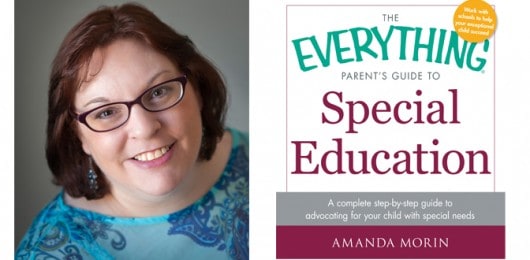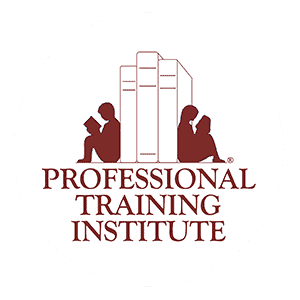
“Many parents feel helpless in the face of what seems like a daunting, tangled system of rules and regulations. Sometimes sitting in meetings to talk about your child’s strengths and weaknesses, and what services are available to a child ‘with that diagnosis,’ can feel more like a contract negotiation than a conversation about an actual child. It can be frustrating and overwhelming to balance being your child’s advocate with the need to work cooperatively with the school district to help your child.”
–From The Everything Parent’s Guide to Special Education
Being an advocate for your child can sometimes feel like you’re wearing a scarlet “A.” But advocate doesn’t have to start with a scarlet letter, and advocacy doesn’t have to be contentious to be effective.
I don’t say that lightly—as parent to two children who have special needs, I’m put in the role of fierce advocate, too. I have mixed feelings about how to balance the idea that I’m supposed to be a “fighter” with the fact that I don’t like confrontation.
Over the years, I’ve concluded that advocacy doesn’t always have to be big and loud. It’s not always a matter of fighting for something. Sometimes advocacy is smaller and quiet.
And while there’s no scarlet “A,” there are letters involved. For me, becoming a strong advocate was at first about the three E’s: excusing, explaining, and educating.
At first I talked about my son’s issues as a way to excuse his behavior. Later on in my journey, I realized how to use what I was talking about not as an excuse, but rather as an explanation for his difficulties. Now, I try to educate people about how we can all work together to help him be successful.
Now I’m learning there’s also a fourth E: empower. When it comes to advocacy, “IEP” stands for much more than my child’s program. It also stands for Informed Educated Parent, who:
- Know a diagnosis is not a label. We stick labels on things to identify what they are before we even look inside. We get diagnoses to get our kids the services they need, to move beyond what people expect when they don’t look beyond the label. A diagnosis gives a framework for medical and educational professionals to look inside and find ways to build on your child’s strengths and address his weaknesses. Informed Educated Parents know their child isn’t defined by his diagnosis, and that having a name for his issues doesn’t change who he is or what he means to you.
- Trust their instincts. As parents, we all have times when we doubt our instincts. However, Informed Educated Parents trusted them enough to know that something wasn’t quite what it should be. No matter what other parents said, and despite your doubts, you spoke up and asked for help. You trusted your instincts, and you’ll do it again when it comes to advocating for your child’s needs in school or your concerns that those needs aren’t being met.
- Ask questions. You ask about your child’s present. You ask about his future. You educate yourself about his disability, and then ask more questions. You speak up at meetings and say, “Hey, can you explain what that means in terms I can understand?” Informed Educated Parents ask questions to learn more about treatments, therapies, interventions, and strategies—and asking questions to learn more puts you on the path to advocating for what your child needs in order to learn.
- Look for Solutions. Informed Educated Parents know solutions aren’t the same thing as fixes or cures. They’re ways solve the everyday problems that come up in your child’s day in and out of school. Solutions are the little changes you make in your daily routines, the therapies your child participates in, or even buying the brand of food your child can tolerate eating. Looking for solutions is at the very heart of being your child’s advocate.
- Continue to learn. Arming yourself with knowledge is the best way to combat the feeling of being helpless. Making sure your child gets what she needs means you empower yourself to learn the system, to know the ABCs of IEPs—learn to speak the language and know how you’ll manage tough issues—before you walk into the IEP meeting.
Want practical tips on advocating for your child and being an Informed Educated Parent? Join us for Amanda’s workshop on “A” is for Advocacy: The ABCs of IEPs at our Needham Learning Center on Tuesday, November 10, from 7-9pm.
Amanda Morin is the author of three books, including The Everything Parent’s Guide to Special Education. She is a contributing writer for Parenting Special Needs Magazine, and on the editorial team of Understood.org. She has worked with renowned experts to provide parents with accurate, up-to-date, and actionable information on child development, parenting, and educational topics.










Jaydin Skinner says: